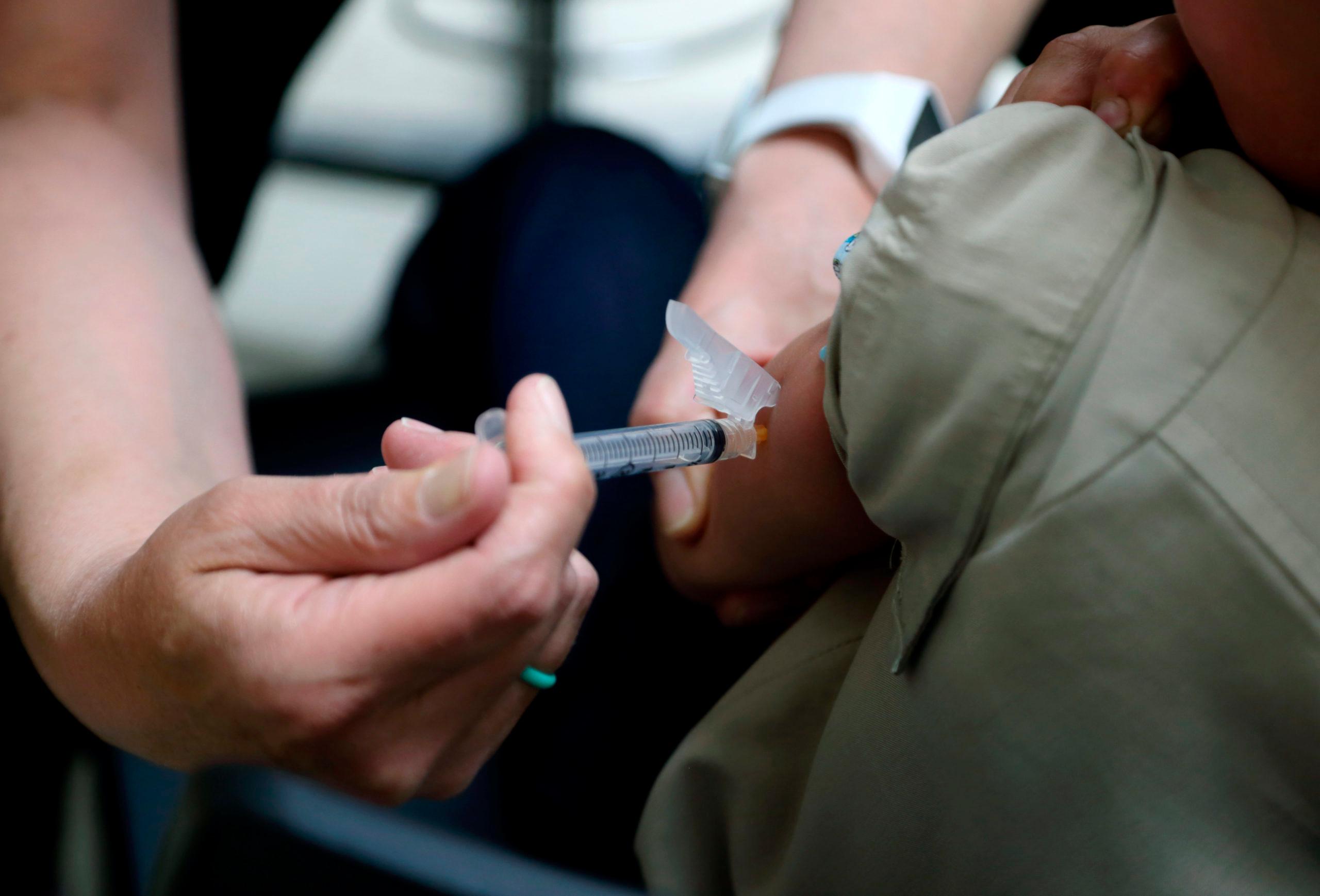
After a marathon hearing that lasted into the early hours Thursday morning, Democrats advanced a bill that aims to boost Colorado’s vaccination rate. Senate Bill 163 cleared the Senate Health and Human Services Committee on a party line 3-2 vote.
But the bill will likely look different if it ultimately passes the Senate. Two Democrats on the committee agreed with Republicans that it raised serious privacy questions, wasn’t properly vetted, and that the mechanics of how it would work still needs to be fleshed out.
The bill would require parents who want to opt a child out of vaccines to either get a signature from an immunization provider or watch an online informational video produced by the Colorado Department of Public Health and Environment. It would also set a state goal of reaching a 95 percent immunization rate.
Sponsors of the legislation say the intent is to make schools and child care centers safe. “Not safe for some, but safe for everybody,” said Democratic Sen. Julie Gonzales of Denver.
The percentage of Colorado kindergartners vaccinated for measles, mumps and rubella has dropped to 87 percent, according to the Centers for Disease Control and Prevention — the lowest rate in the country. Public health officials say that makes pockets of the state especially prone to a measles outbreak.
The Senate hearing was the first chance for members of the public to weigh in on the proposal. “I'm here because we are doing worse today, and here in Colorado so far we have failed to take action,” said Chris Nicholson who came to testify from Denver. “Kids today should feel safe at school, and it is shameful that we have let them down.”
But opponents said the measure is an heavy-handed effort meant to indoctrinate parents into agreeing to vaccines. They had concerns about what could be an “extremely biased informational video” and didn’t trust the state health department to collect demographic data on who is getting exemptions and administer it in a tracking system.
“I'm here to speak to each of you about standing on the side of justice, inclusiveness and acceptance,” said Angela Davis who testified against the bill. “Democrats have claimed that they are the party that stands up for minorities, protected populations and civil and human rights. Where are you now? Where was the real stakeholder process?”
A lot of the opposition centered on data collection.
“Why do we need to track these people so closely?” asked Republican Sen. Paul Lundeen of Colorado Springs.
“Everything to me depends on what the video looks like and the new form looks like,” said Republican Sen. Jim Smallwood of Parker on whether he could eventually get on board with the measure. He said serious vaccine-related reactions and injuries are rare but still need to be discussed.
“If it happened to you that’s really the only statistic that matters,” he said Smallwood also said he understood the desire to increase the vaccination rate.
Democratic Sen. Rhonda Fields of Aurora said she wants the process to be more inclusive going forward, and criticized bill sponsors because she feels they didn’t talk to people from different perspectives when crafting the legislation.
“It’s dismissive when you said we had all these stakeholders, and the testimony was like, ‘No one reached out to me,’” said Fields.
Several parents worried the measure would make children who don’t get vaccinated the target of bullying and some parents testified that’s already happening.
Democratic Sen. Faith Winter of Westminster was empathetic to that argument, and said no one should ever be bullied for any reason.
“It’s completely unacceptable and unfortunately on this issue we see it a lot,” she said. Winter added that people who support vaccines are also bullied and she’s read online attack messages from anti-vaccine advocates. She said the bill is reasonable because it would protect public health and keep exemptions in place.
“I think there’s privacy issues we can work on,” Winter said. Meanwhile Democratic Sen. Joann Ginal of Fort Collins had a range of concerns about how the measure would be implemented but said she was “a yes for today.”
The bill wouldn’t change which exemptions are allowed. In Colorado, people can opt-out for medical or nonmedical reasons, such as a personal or religious belief. Right now parents turn in a form to a child’s school or day care provider.
The medical and public health community has said it supports the legislation and said herd immunity rates need to increase to prevent disease outbreaks. They say higher immunization rates are also needed to protect those who can’t get vaccinated: those who are too young or those who have a medical condition that prevents it. Some said the measure is already a compromise and say some states have already banned nonmedical vaccine exemptions altogether.









